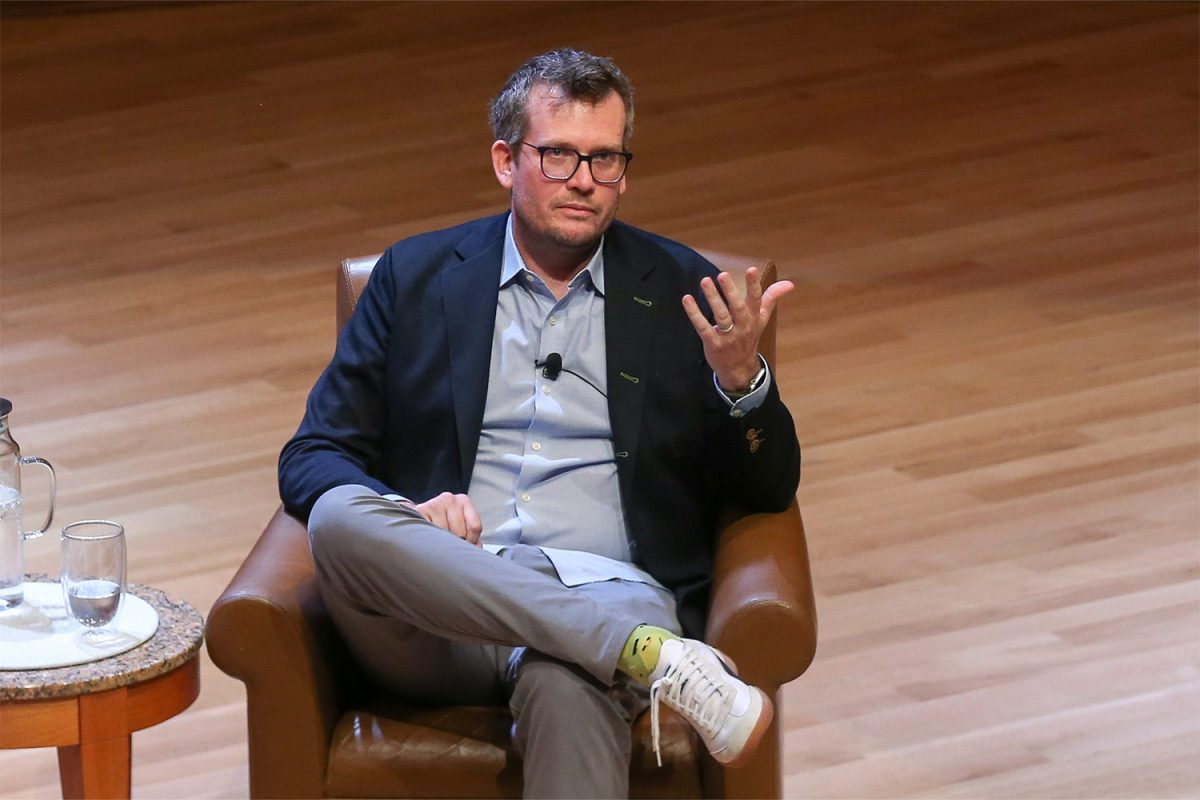The career of historian Hal Chase started when he was 8 years old after being uprooted from his hometown of Des Moines and dropped in “legally” segregated Frankfort, Ky., in 1950.
“I discovered on the first day that I was a ‘Yankee,’ ‘damn Yankee,’ or, pardon their choice of words, a ‘n—– lover,’ ” he said. “And that taught me that something called the Civil War had taken place and that some people were still fighting it — and I think I fought every kid in the second grade at my school, some of them more than once.”
His story, and those of others, will be the driving force behind Chase’s presentation at 6:30 p.m. today in the Old Capitol Museum, “Beyond Racism: The Civil War, Emancipation, and the Continuing Struggle for a New Birth of Freedom.”
Sponsored by Humanities Iowa, Chase’s talk will coincide with Black History Month and the Old Capitol Museum exhibit Gone to See the Elephant: The Civil War through the Eyes of Iowa Soldiers, which began Aug. 30, 2012, and will run through May 26. The exhibit commemorates the 150th anniversary of the middle of the Civil War by focusing on the stories of six influential Iowans who were involved in the conflict.
“We have soldiers, family members, and minorities who, in one way or another, were affected by the war,” said Shalla Ashworth, the director of operations for the Pentacrest Museums. “History repeats itself inevitably. Fast-forward to today; the same challenges are being faced by military families, so it’s very parallel.”
Chase, a coauthor of the book Outside In: African-American History in Iowa, said he plans to highlight such parallels to the evolution of civil rights in Iowa and beyond from the Civil War to today. He plans to give a 15-minute audiovisual presentation and then hold a discussion in which he will invite visitors to share their stories.
“I will highlight how, in my perspective, civil rights in Iowa have been broadened and, I hope, deepened over the years,” he said. “When people start to open up and tell stories from their own lives about discrimination in their families, it’s just wonderful.”
Kathrine Moermond, the museum education & outreach coordinator, said she hopes Chase, the five other scheduled speakers, and various Civil-War-focused films, activities, and presentations will provide insight on the war’s effect, not only on civil rights but military strategy, medicine, regional identities, industry, foods, fashion, and more.
“It’s such a fascinating time, and I feel like it’s so dense,” she said. “I tried to find as many perspectives of the war as I could so people can take away their own viewpoint from it. There’s also an element of taking the information out of the classroom and allowing people to participate in it.”
Ashworth, one of whose ancestors left Iowa City for the Civil War, said she believes the programming will give new meaning to visitors’ family history, and Chase said he hopes the stories of the past will inspire the current generation to action.
“What every one of us does has an impact, believe it or not, on everyone else; therefore, we are responsible for every little thing we do,” he said. “People think history is something that only presidents and celebrities make, but we make it every day and night.”





